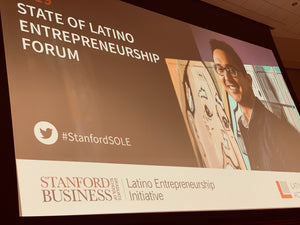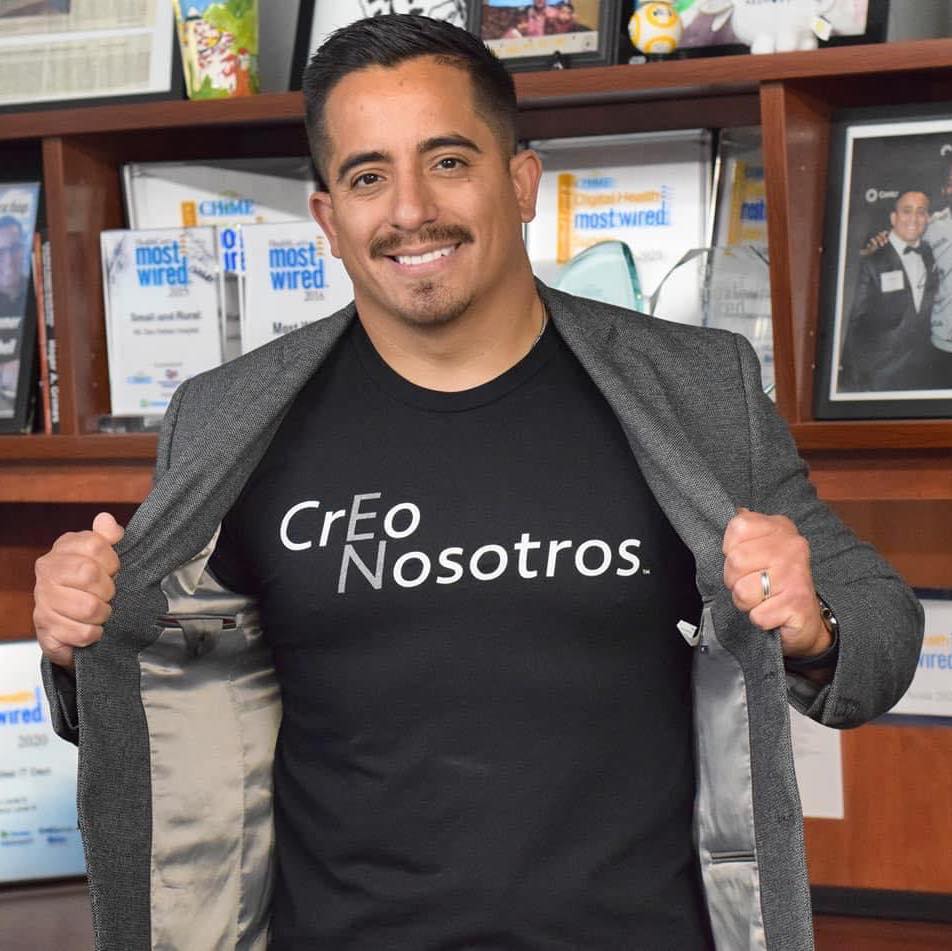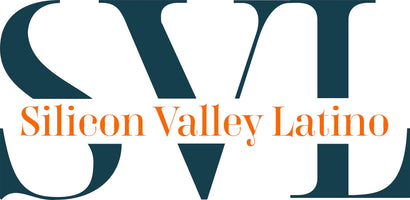State of Latino Entrepreneurship
January 28, 2019

Silicon Valley Latino had the pleasure of attending the 2019 State of Latino Entrepreneurship Forum on Friday, January 25, 2019, at the Stanford Graduate School of Business. It was wonderful to see several hundreds in attendance including numerous Silicon Valley Latino Ambassadors and Advisory Board Members supporting this annual event.
The program included a welcome by the Latino Business Action Network (LBAN), CEO, Mark Madrid as well as LBAN Founder & Chairman Emeritus and Stanford Graduate School of Business Professor, Emeritus, Dr. Jerry Porras and LBAN Chairman, Victor Arias. Marlene Orozco, LBAN Lead Research Analyst presented a detailed 2018 Research Report overview. Victor Arias also conducted an insightful panel discussion with Stanford Latino Entrepreneurship Initiative Education Scaling Program graduates which included Rafael Alvarez, Founder & CEO of ATAX and Maria A. Marin, President & CEO of Recycling, Inc. Unlimited, Inc. The program concluded LBAN Board Member, Sol Trujillo interviewing Nick Bailey, former President and CEO of Century 21 in an intimate fireside chat. Silicon Valley Latino appreciates the diligent and purpose driven work that LBAN leads to support Latino entrepreneur community. We look forward to staying tuned to more of LBAN updates.
Executive Summary
With this report, the Stanford Latino Entrepreneurship Initiative (SLEI) shares results from the fourth annual Survey of U.S. Latino Business Owners. We examine characteristics of U.S. Latino-owned businesses, identify business approaches that correlate with Latino business success, and highlight important information about Latino entrepreneurs’ attitudes toward and access to capital.
Previous SLEI reports have detailed growth trends in the total number of U.S. Latino-owned businesses, estimated to be around 5 million. The U.S. Census Bureau reports that while the total number of businesses in the U.S. declined from 2007 to 2012, the number of Latino-owned businesses grew by 46 percent.
Currently, most Latino-owned businesses start small and stay small, with only 3 percent of all Latino-owned companies generating at least $1 million in annual gross revenue. In this report, we share insights into a growth framework that highlights characteristics and strategies prevalent among Latino-owned firms that have successfully scaled. The corollaries of success outlined in the growth framework may be interesting for other Latino firms seeking to grow. We also examine entrepreneurs’ perspectives on barriers to growth and their attitudes about and access to outside capital. We highlight key issues and findings below.
Several business strategies and characteristics positively correlate to scale: Latino-owned firms that generate $1 million+ in annual gross revenue (i.e., scaled firms) are more likely than unscaled firms to hold Minority- and Women-owned Business Enterprise (M/WBE) business certification, to be networked with local business organizations such as chambers of commerce, to formally register their company, to operate a firm in the technology sector, and to export their products.
Business Certification: M/WBE certification programs exist to address social and economic disadvantages. Among all Latino-owned firms surveyed, 21 percent have some type of business certification. Scaled Latino-owned firms are more likely to be certified (58 percent), giving them access to contracts not available to uncertified firms.
Formal Networking: Membership in business organizations such as chambers of commerce or trade associations can develop an entrepreneur’s social capital and can be related to economic returns by virtue of referrals, access to information, or other business opportunities. Scaled firms are more likely to be well-networked (77 percent) than the average Latino-owned firm (35 percent).
Business Registration: Formally registering a business with local, state, and/or federal agencies can provide personal liability protection, legal benefits, and potential tax benefits. In this study, scaled businesses are more likely to be registered than unscaled businesses (89 percent compared to 67 percent).
Technology Sector: On average, 8 percent of Latino-owned businesses operate in the technology sector. Scaled firms are more likely to be in the tech sector (24 percent) than unscaled firms (7 percent). Although being in the tech sector did correlate with revenues above $1 million, Latino tech companies still report lack of access to capital as a major factor impacting their profitability.
Exporting Goods & Services: According to the Department of Commerce, U.S. businesses that export not only grow faster but also are nearly 8.5 percent less likely to go out of business than non-exporting businesses.1 We found that 14 percent of all Latino-owned companies export products and services, while 30 percent of scaled Latino companies did so. Latino export businesses are more likely to be profitable, immigrant-owned, scaled, and tech companies. The top two export markets include Mexico (18 percent) and Canada (13 percent).
The majority of Latino-owned businesses did not apply for financing in the previous 12 months; among those that did, three-quarters obtained at least a portion of the financing requested.
In the 12-month period prior to taking the survey, 60 percent of Latino business owners did not apply for any financing. Among those who did apply for financing, 30 percent applied for less than $100,000. Scaled firms had all of their funding approved at nearly twice the rate of unscaled firms (51 percent compared to 29 percent). Firms that are highly networked with formal organizations (e.g. chambers of commerce, trade associations, etc.) are also more likely to obtain all of the funding they requested (37 percent compared to 27 percent). For firms that did not apply for financing, their reasons included: funding not needed (30 percent); did not want to accrue debt (20 percent); and did not think the application would be approved (15 percent).
Previous research by SLEI, the Federal Reserve Bank of New York, and Interise noted that while Latino business owners apply for financing at comparable rates to white business owners, Latino entrepreneurs are more likely to experience a funding shortfall. Twenty-eight percent of Latino business owners received full funding, compared to 49 percent of white business owners.2 In other words, Latino business owners are denied more often than white business owners.
Personal credit scores are utilized more frequently than business credit scores when securing capital.
Just as personal credit scores provide information to lenders when an individual seeks a mortgage or other personal loan, business scores indicate the credit risk of a business. However, 72 percent of small business owners do not know their business credit score, and 60 percent don’t know how to find it.3 This leads to low rates of usage, even though owners who understand their business credit score are 41 percent more likely to be approved for a loan.4
Our study found that only one-third of Latino-owned employer and scaled firms use a business score to access capital. This means that many firms with proven track records continue to rely on the owner’s personal credit scores when seeking funding for the business. Thus, Latino business owners with good personal credit are more likely to have higher gross business revenue and also use a wider variety of funding.
Most Latino entrepreneurs with scaled businesses were raised in lower and lower-middle income households.
As a key measure in the growth framework, scaled businesses, or those that generate more than $1 million in annual gross revenue, serves as one benchmark of business success. Relatedly, business success may be linked to personal success (i.e., household wealth), and social mobility in entrepreneurship has become an important topic of study. In our survey, we find that a plurality of Latino business owners who have grown their company to $1 million or more in annual gross revenue (i.e., scaled firms) report having been raised in lower to lower-middle income households, suggesting that childhood background need not be an insurmountable barrier to building a successful business.
Leave a comment
Comments will be approved before showing up.








